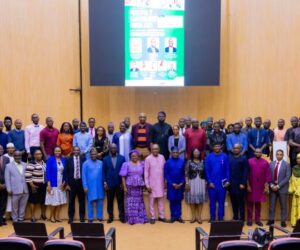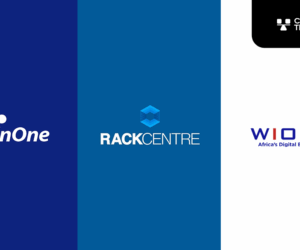The global gaming industry has become a surprising test lab for innovation. Beyond entertainment, it pushes new models of digital security, trust, and customer experience that often spill into finance and e-commerce.
Nigeria, with its fast-growing digital economy, can draw lessons from these global shifts.
In 2025, leading baccarat platforms reviewed worldwide are showing how smart design and transparent systems can raise user confidence.
Platforms like บาคาร่าเว็บตรง emphasize direct access, safer payments, and clear rules, creating an environment where both casual players and serious bettors feel protected. For Nigeria, where fintech adoption is booming, such lessons are more than relevant, they are timely.

How Web Baccarat Platforms Set the Bar on Security
Security is no longer optional for digital platforms. Baccarat sites that thrive today do so by investing in advanced safeguards that keep user data and funds safe. Encryption, two-factor authentication, and regular audits are becoming standard practice.
For Nigeria, the message is clear. If fintech services, e-commerce businesses, and gaming operators want long-term trust, they must embrace similar standards. Customers are far more likely to use platforms that show visible proof of strong data protection.
Fair Play and Transparent Systems
Fairness is another central theme. The best baccarat platforms now use independent audits and random number generators that are certified by global authorities. They also make terms and payout structures easier to understand.
This kind of transparency is something Nigeria’s digital ecosystem can adapt. Whether it’s online gaming, digital lending, or mobile payments, people want to know they are not being taken advantage of. Clear rules and open communication build lasting relationships between businesses and their users.
Innovation at the Core
What makes these platforms stand out is not only their ability to secure transactions or ensure fairness, but also their drive to innovate. From integrating cryptocurrencies as payment options to experimenting with artificial intelligence for better fraud detection, baccarat platforms are testing tools that often spread to other industries later.
For Nigeria, the opportunity lies in blending these ideas with local solutions. Mobile-first innovation, already popular in fintech, could be enhanced with lessons from gaming platforms that have mastered fast, low-friction transactions.
Nigeria’s Path Forward
So how can these insights translate into real change in Nigeria’s digital economy?
- Regulators can design frameworks that balance user protection with room for innovation, just as global gaming regulators have done.
- Fintech companies can borrow features like clear payout transparency to apply in loan or savings apps.
- Gaming operators can build systems that follow global standards while also respecting Nigeria’s cultural and legal context.
By taking these steps, Nigeria positions itself not just as a follower but as a leader in shaping trustworthy, innovative digital platforms.
Why Cross-Industry Lessons Matter
One of the overlooked benefits of studying global gaming trends is that it allows countries like Nigeria to see how trust is built at scale. Digital economies thrive when people feel their data and money are safe, and when rules are seen as fair.
As users engage with more online platforms—whether it’s shopping, investing, or playing—the boundaries between industries blur. A culture of transparency in one sector strengthens confidence in the entire digital landscape.

Photo by Muhammad-Taha Ibrahim
Conclusion: Turning Inspiration into Action
The rise of secure, transparent, and innovative baccarat platforms is more than a gaming story. It is a model that Nigeria can use as it builds its digital future.
By focusing on strong security, fair systems, and constant innovation, Nigeria’s fintech and gaming industries can grow in a way that protects consumers and encourages sustainable expansion.
The challenge now is to adapt these global lessons in a way that respects local realities. If done right, the result could be a digital economy that earns trust at home and recognition abroad.








